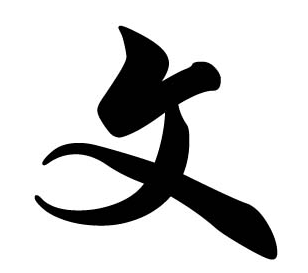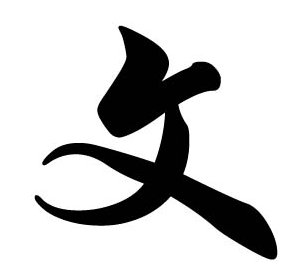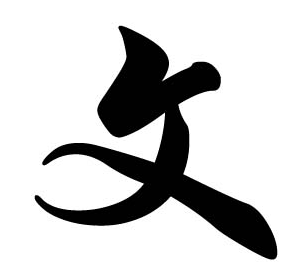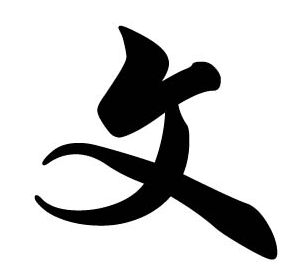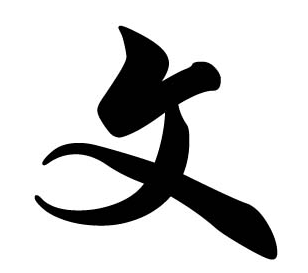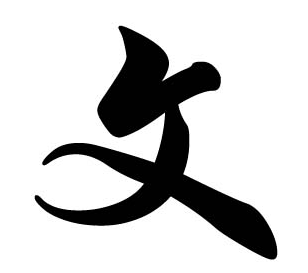Sima Qian - Letter to Ren An
Description
This week is the last in our Sima Qian series, but it is also definitely the best. We look at how Sima Qian lost his testicles while sticking to his principles. We consider the conflict between him and Emperor Wu that percipitated his castration. I also make a big announcement.
Here is the Transcript:
My name is Lee Moore, and this is the Chinese literature podcast. We are coming to the end of our Summa Chen series. Last week, we looked at Summa Chen's discussion of the capitalists, Summa Chen's defense of free market principles. This week, we are looking at one of the most famous Summa Chen works. And strangely, it might not even have been by Sima Qian himself.
This week we are talking about the famous Bao Ren An Shu, the letter replying to Ren An, the letter to Ren An as it's sometimes translated. First we're going to discuss the controversy surrounding the letter and the context in which it was produced, and then we're going to dive into the letter itself.
So what's the controversy? There's actually a debate as to whether or not Sima Qian wrote the letter. The letter to Renan, despite the fact that This is the work that Sima Qian is most known for. It doesn't appear in the shi ji, the records of the historian. The records of the historian is Sima Qian's main work.
Why doesn't the letter of Ren'an appear in that work? We don't really know. Instead, it appears in the Han shu, the history of the Han, the book of the Han. The Han shu, is a work that appears almost two centuries after Sima Qian's death. Now, the letter to Renan appears in that work and it purports to be by Sima Qian.
Did Sima Qian actually write this letter? It's hard to say. There's a book written by Li Weiyi, Michael Nylan, Han Venice, and Stephen Durant. They're all stunningly good. Scholars, professor Durant's a friend of the podcast has appeared on the podcast way back in April 17. They argue that this letter might actually be written by someone else, but they think it's pretty much true to Sima Qian.
I don't understand what that means if The letter is written by someone else, but true to him, I don't, I don't know. That's a circle that I can't square, but that's fine. I just wanted to talk a little bit about that controversy. Is this letter by Sima Qian? We don't know. Does it matter? Probably not, because for two millennia, it's Chinese readers have been reading this letter and whether or not it was truly written by the real historical Sima Qian, it has become associated with the character of Sima Qian in the minds of so many Chinese readers.
Okay. Enough on the controversy. Let's dive in to the circumstances surrounding this letter. Renan was supposedly a friend of Sima Qian. Renan is involved in a rebellion in 91 BC called the Liuzhou Rebellion. Renan is facing execution because he supposedly did not. display sufficient loyalty to the emperor during this rebellion.
Ren An writes a letter to Sima Qian explaining what happened. Ren An doesn't think his execution is justifiable. Sima Qian replies to Ren An's letter. Sima Qian essentially tells Ren An to suck it up, deal with it. And then he, it is this long disquisition. By so much in explaining what happened to so much in himself and how he dealt with the prospect of almost being executed by the emperor and how in the end so much in lost his testicles though not his life.
Let's jump back in time a bit. So much in served Emperor Wu of the Han dynasty, Han Mu Di. Emperor Wu is very controversial. He institutes this new economic policy, something that we talked about in the last podcast. Emperor Wu also breaks with other traditions. So for about quite the past century, the Han dynasty largely kept the northern barbarians, that is the Xiongnu, in check.
And they had done this with a pretty simple diplomatic formula. They paid them and they married the, uh, Han Dynasty princesses off to the Xiongnu as a way to make sure the Xiongnu had skin in the game and knew that if they raided Han towns along the borderlands, they were going to get cut off from the stuff.
Essentially, the Han Dynasty was selling them goods and trying to get them addicted to the kinds of industrial goods that only a society like China could produce. And once they got used to these Industrial goods these luxuries they wouldn't attack the Han because they knew that they could get cut off and they constructed this whole sexual dependency as well They the Han Dynasty argued that Chinese women were more beautiful than these barbarian women And you can't get more beautiful Chinese women, unless you work with us, we'll send you Han dynasty princesses.
If you don't attack our villages and we'll cut you off. If you do attack our, our towns on the borderlands, Emperor Wu stops all that. He is very frequently warring with the Xiongnu, those Northern barbarians. Emperor Wu says. We ain't going to pay the Xiongnu any more money for peace, and we ain't going to give them any more princesses.
It's an incredibly expensive policy change. It's also something that Sima Qian promptly criticizes in his, uh, Xiongnu Liezhuan, the biography of the Xiongnu, where Sima Qian seems remarkably sympathetic to the Xiongnu's side, considering that his job, Sima Qian's job, is the archivist of Emperor Wu. Sima Qian goes out on a limb there and really expresses Uh, a lot of sympathy for the Xiongnu.
Emperor Wu and Sima Qian have these philosophical differences. Sima Qian does not like Emperor Wu's economic policy. Sima Qian does not like how Emperor Wu deals with the Xiongnu. There are other things that go on. Then this thing happens. During one of the wars with the Xiongnu, a guy named Li Ling. Goes and shoots his mouth off.
General Li Ling says he can destroy the Xiongnu with just a handful of troops. Initially, Emperor Wu is skeptical. He thinks General Li Ling is just talking trash, but Emperor Wu eventually gives General Li Ling his troops. General Li Ling marches on the Xiongnu. He meets the main body of the Xiongnu troops somewhere in the Altai mountains, in that region where modern Russia, Kazakhstan, Xinjiang, and Mongolia all come together.
General Li Ling is now regretting mouthing off. He's surrounded by a much larger group of Xiongnu troops. General Li Ling and his troops fight bravely. In this passage, I'm going to read, Li Ling's forces are surrounded. They're running out of supplies. An officer from Li Ling's army is insulted. He defects to the Xiongnu and tells The Xiongnu, that Li Ling's troops are running low on arrows, so of course the Xiongnu push it harder.
Li Ling's forces are in a bad way. The relief column did not come. The dead and wounded troops lay in piles. Nevertheless, Li Ling gave a shout to cheer up his army, and not a soldier failed to rise. He was crying, swallowing, tears running down his bloody face. Here is a translation. From here's my translation from the passage that I'm drawing from an entire country surrounded them for thousands of miles They had to turn and fight turn and fight their arrows exhausted the roads of escape Used up the backup soldiers.
They had requested had not arrived the dead and the wounded soldiers Piled up, but Li Ling shouted to his army, and every soldier rose. Li Ling personally shed tears, and with his face bleeding, he drank his own tears. They drew back their empty crossbows, risking everything before the bright swords.
Facing north, they fought. To the death with the enemy emperor Wu was incredibly pissed You've got to imagine general li ling had been running his mouth for all this time and he ends up surrendering emperor Wu was angry And then sima qian comes back into the story. Sima qian had kind of known li ling They hadn't had a beer together despite the fact that sima qian was not very close with li ling.
He still defends him He says li ling is a good guy. He says that li ling and I we lived in the palace together I knew li ling Even if we were never good friends. Sima Qian tries to argue that Li Ling was a brave man. Emperor Wu takes out his anger at Li Ling on Sima Qian. He orders that Sima Qian be executed.
But then, Emperor Wu rethinks what he has done. He grows a little bit less angry and he actually commutes Sima Qian's death. sentence. The punishment that he gives him is the lesser punishment of castration. Now, you got to understand, this is the Han Dynasty. In the Han Dynasty, no self respecting man would live castrated.
In the Han Dynasty, they thought that it was better to die than to be unmanned. So, when Emperor Wu commutes that punishment from execution to castration, He's not expecting Sima Qian to live on. Instead, he's giving him an out. Emperor Wu is allowing Sima Qian to commit suicide through means of his own choosing.
He can choose a less gruesome death than the kind that he would have faced if he was executed. But the expectation is still that this punishment will result in Sima Qian's death, even if it's by suicide rather than an out. execution. According to the letter to Renan, Sima Qian


